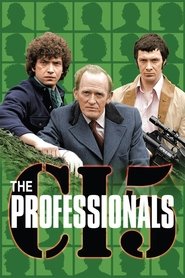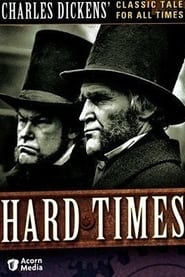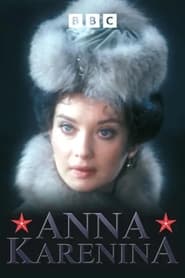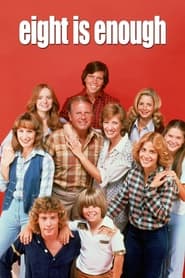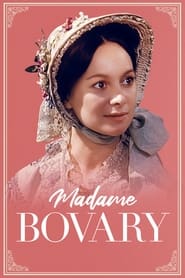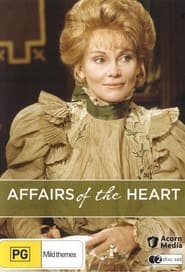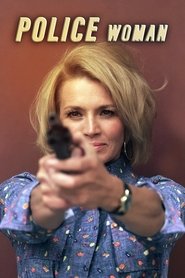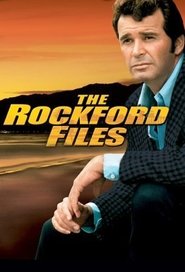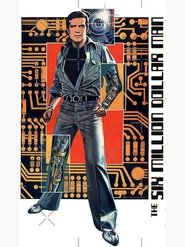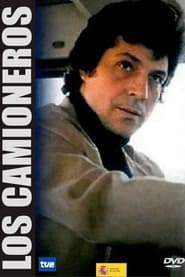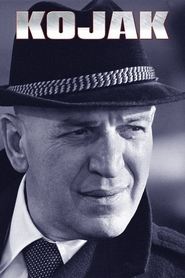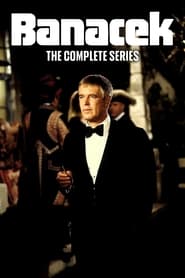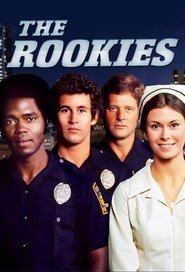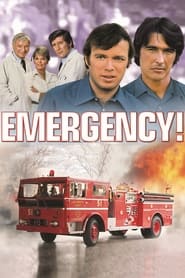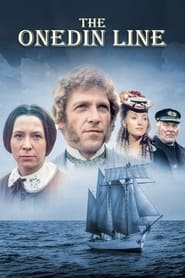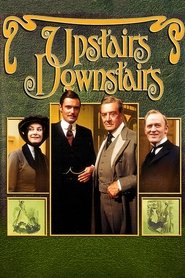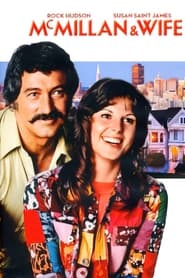New Drama TV Series on The Roku Channel - Page 63
-
The Professionals
1977
The Professionals
1977
star 7.5The lives of Bodie and Doyle, top agents for Britain's CI5 (Criminal Intelligence 5), and their controller, George Cowley. The mandate of CI5 was to fight terrorism and similar high-profile crimes. Cowley, a hard ex-MI5 operative, hand-picked each of his men. Bodie is a cynical ex-SAS paratrooper and mercenary whose nature ran to controlled violence, while his partner, Doyle, comes to CI5 from the regular police force, and is more of an open minded liberal. Their relationship is often contentious, but they are the top men in their field, and the ones to whom Cowley always assigned to the toughest cases. -
Hard Times
1977
Hard Times
1977
star 5Hard Times is a four-part British television drama miniseries based on Charles Dickens' 1854 novel of the same name, a survey of English society and a satirisation of 19th century social and economic conditions. Wealthy, retired Coketown merchant Thomas Gradgrind devotes his life to a philosophy of rationalism, self-interest, and fact. He raises his eldest children, Louisa and Tom, according to this philosophy and never allows them to engage in fanciful or imaginative pursuits. -
Anna Karenina
1977
Anna Karenina
1977
star 6.7Anna Karenina was a 1977 BBC television adaptation of Leo Tolstoy's novel & tragic story of the love affair between Vronsky, a Russian Count and Anna Karenina, a married upper class woman. Nicola Pagett takes the role of Anna, a young woman who is married to a man twenty years her senior (Eric Porter), and who begins a passionate affair with the handsome Count Vronsky (Stuart Wilson). When she falls pregnant, Anna decides to dissolve her marriage and wed Vronsky, but true happiness proves elusive. -
Eight Is Enough
1977
Eight Is Enough
1977
star 6.1Eight Is Enough is an American television comedy-drama series that ran on ABC from March 15, 1977, until August 29, 1981. The show was modeled after syndicated newspaper columnist Thomas Braden, a real-life parent with eight children, who wrote a book with the same name. -
The Bionic Woman
1976
The Bionic Woman
1976
star 6.9After fully recovering from her near fatal bout of bionic rejection, Jaime Sommers, the first female cyborg, is assigned to spy missions of her own. -
Madame Bovary
1975
Madame Bovary
1975
star 4.7Francesca Annis and Tom Conti star in this acclaimed UK miniseries adaptation of Gustave Flaubert's classic tale of one woman's attempts to mold her own unfulfilling life in the shape of her favorite romantic novels. -
Moses the Lawgiver
1975
Moses the Lawgiver
1975
star 7The Story of the Exodus or freedom of Hebrews from Egypt is told from a perspective that highlights Moses' efforts to persuade first the stubborn Pharaoh Merneptah, who was his adopted cousin, to release his workforce of slaves. Then, once free and in the wilderness en route to the Promised Land, Moses must prove to be a pious and patient leader or lawgiver to a people who still think they want more out of him or God. For 40 years, Moses must carry on this load and challenge for God and Israel. With the help of his brother Aaron and Joshua, the people of Israel are officially born or created centuries ago when God promised and vowed to Jacob that he would be the father of a mighty nation. -
Affairs of the Heart
1974
Affairs of the Heart
1974
Anthology series of one-hour love stories based on the short stories of Henry James. -
Police Woman
1974
Police Woman
1974
star 6.2Sergeant “Pepper"” Anderson, an undercover cop for the Criminal Conspiracy Unit of the Los Angeles Police Department, poses undercover from mob girl to prostitute. -
The Rockford Files
1974
The Rockford Files
1974
star 7.6Cranky but likable L.A. PI Jim Rockford pulls no punches (but takes plenty of them). An ex-con sent to the slammer for a crime he didn't commit, Rockford takes on cases others don't want, aided by his tough old man, his lawyer girlfriend and some shady associates from his past. -
Movin' On
1974
Movin' On
1974
star 6.4Movin' On is an American drama series that ran for two seasons, between 1974 and 1976. It originally appeared on the NBC television network. The pilot episode for the series was known as In Tandem. -
The Six Million Dollar Man
1974
star 7.3Follow the adventures of Steve Austin, cybernetically enhanced astronaut turned secret agent, employed by the OSI, under the command of Oscar Goldman and supervised by the scientist who created his cybernetics, Rudy Wells. Steve uses the superior strength and speed provided by his bionic arm and legs, and the enhanced vision provided by his artificial eye, to fight enemy agents, aliens, mad scientists, and a wide variety of other villains. -
Los camioneros
1973
-
Kojak
1973
Kojak
1973
star 7.1A bald, lollipop sucking police detective with a fiery righteous attitude battles crime in New York City. -
Banacek
1972
Banacek
1972
star 8.6Banacek is an American detective TV series starring George Peppard that aired on the NBC network from 1972 to 1974. The series was part of the rotating NBC Wednesday Mystery Movie anthology. It alternated in its time slot with several other shows but was the only one to last beyond its first season. -
The Rookies
1972
The Rookies
1972
star 6.8The Rookies is an American crime drama series that aired on ABC from 1972 until 1976. It follows the exploits of three rookie police officers working in an unidentified city for the fictitious Southern California Police Department. -
Emergency!
1972
Emergency!
1972
star 7.8The crew of Los Angeles County Fire Department Station 51, particularly the paramedic team, and Rampart Hospital respond to emergencies in their operating area. -
The Onedin Line
1971
The Onedin Line
1971
star 6.8The Onedin Line is a BBC television drama series which ran from 1971 to 1980. The series was created by Cyril Abraham. The series is set in Liverpool from 1860 to 1886 and deals with the rise of a shipping line, the Onedin Line, named after its owner James Onedin. Around this central theme are the lives of his family, most notably his brother and partner, shop owner Robert, and his sister Elizabeth, giving insight into the lifestyle and customs at the time, not only at sea, but also ashore. The series also illustrates some of the changes in business and shipping, such as from wooden to steel ships and from sailing ships to steam ships. It shows the role that ships played in affairs like international politics, uprisings and the slave trade. -
Upstairs, Downstairs
1971
Upstairs, Downstairs
1971
star 7.8Upstairs: the wealthy, aristocratic Bellamys. Downstairs: their loyal and lively servants. For nearly 30 years, they share a fashionable townhouse at 165 Eaton Place in London’s posh Belgravia neighborhood, surviving social change, political upheaval, scandals, and the horrors of the First World War. -
McMillan & Wife
1971
McMillan & Wife
1971
star 6.9McMillan & Wife is a lighthearted American police procedural that aired on NBC from September 17, 1971 to April 24, 1977. Starring Rock Hudson and Susan Saint James in the title roles, the series premiered in 90-minute episodes as part of the wheel series NBC Mystery Movie, in rotation with Columbo and McCloud. Initially airing on Wednesday night, the original line-up was shifted to Sundays in the second season, where it aired for the rest of its run. This was the first element to be created specially for the Mystery Movie strand.
 Netflix
Netflix
 Amazon Prime Video
Amazon Prime Video
 Apple iTunes
Apple iTunes
 Apple TV Plus
Apple TV Plus
 Disney Plus
Disney Plus
 Google Play Movies
Google Play Movies
 Paramount Plus
Paramount Plus
 Hulu
Hulu
 HBO Max
HBO Max
 YouTube
YouTube
 fuboTV
fuboTV
 Peacock
Peacock
 Peacock Premium
Peacock Premium
 Amazon Video
Amazon Video
 The Roku Channel
The Roku Channel
 AMC+
AMC+
 Kocowa
Kocowa
 Hoopla
Hoopla
 The CW
The CW
 Vudu
Vudu
 Starz
Starz
 Showtime
Showtime
 PBS
PBS
 Pantaflix
Pantaflix
 FXNow
FXNow
 Tubi TV
Tubi TV
 Kanopy
Kanopy
 Comedy Central
Comedy Central
 Crunchyroll
Crunchyroll
 Microsoft Store
Microsoft Store
 Redbox
Redbox
 Sun Nxt
Sun Nxt
 ABC
ABC
 DIRECTV
DIRECTV
 Crackle
Crackle
 Fandor
Fandor
 Plex
Plex
